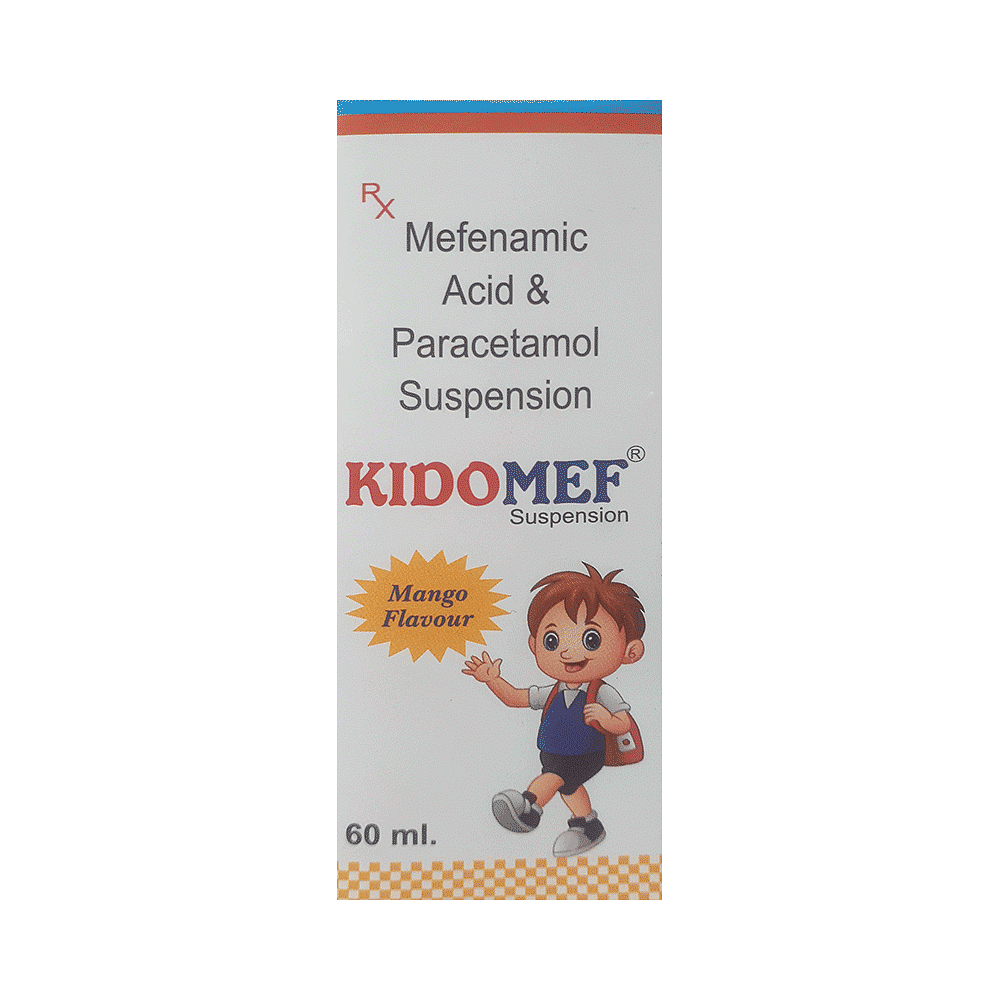
Mbnef P Oral Suspension
Manufacturer
MBS Formulation
Salt Composition
Mefenamic Acid (50mg) + Paracetamol (125mg)
Key Information
Short Description
Mbnef P Oral Suspension is a non-steroidal anti-inflammatory drug (NSAID) used to reduce pain, fever, and inflammation in infants and children.
Dosage Form
Oral Suspension
Introduction
Mbnef P Oral Suspension contains two active ingredients, Mefenamic acid and paracetamol, which are NSAIDs. It is used to reduce pain, fever, and inflammation in infants and children. Adhere to the prescribed dose, time, and way while giving Mbnef P Oral Suspension to your child. Give it orally, preferably at a fixed time. It can be given before or after food, but giving it after food helps prevent the chance of developing an upset stomach. If your child vomits within 30 minutes of taking this medicine, give the same dose again. Avoid giving more than the recommended dose for fast relief as that may cause unwanted effects in your child.
Directions for Use
Take this medicine in the dose and duration as advised by your doctor. Check the label for directions before use. Measure it with a measuring cup and take it by mouth. Shake well before use. Mbnef P Oral Suspension may be taken with or without food, but it is better to take it at a fixed time.
Safety Information
Side Effects
No common side effects listed
Alcohol Warning
It is unsafe to consume alcohol with Mbnef P Oral Suspension.
Breastfeeding Warning
Mbnef P Oral Suspension is safe to use during breastfeeding. Human studies suggest that the drug does not pass into the breastmilk in a significant amount and is not harmful to the baby.
Pregnancy Warning
Mbnef P Oral Suspension may be unsafe to use during pregnancy. Although there are limited studies in humans, animal studies have shown harmful effects on the developing baby. Your doctor will weigh the benefits and any potential risks before prescribing it to you. Please consult your doctor.
How it works
Mbnef P Oral Suspension contains Mefenamic acid and paracetamol as its active ingredients, which are NSAIDs. It works by blocking the release of certain chemical messengers that cause fever, pain, and inflammation (redness and swelling).
Quick Tips
Maintain a log of your child's temperature. If you do not see any improvement, contact your child's doctor for advice. Keep a track of the dose and the frequency in which you have given this medicine to your child. This will help prevent overdosing. Practice self-care tips like giving plenty of fluids to your child, giving them a balanced diet, and encouraging them to have optimum sleep since sick children get tired soon and getting plenty of rest helps them recover faster.
Related Medicines

Mefanil-P Oral Suspension

Kidomef Oral Suspension Mango

Parabox M Oral Suspension

Mekaz Oral Suspension

Mefmol P Oral Suspension

Granspas Oral Suspension

Paravac M Oral Suspension

Duramef M Oral Suspension

Krimef-P Oral Suspension Mango

Fastdoz MP Oral Suspension


